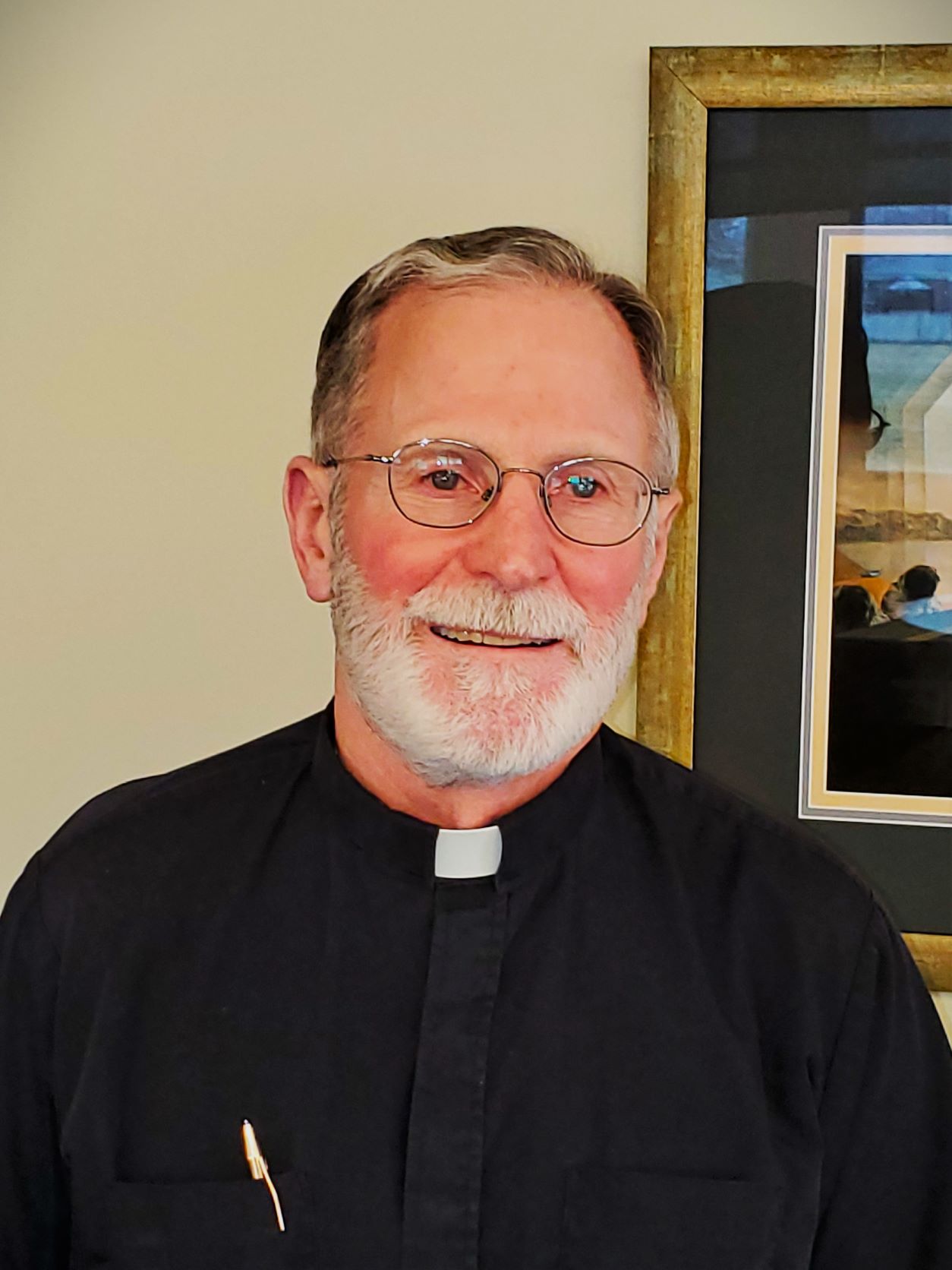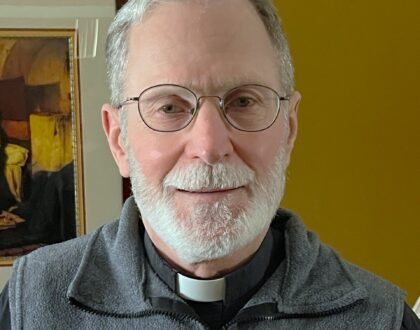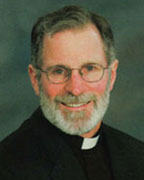Homily, July 7, 2024

From The Pastor
As a leading Pharisee, Saul was not yet schooled in the sufficiency of grace. Highly educated and zealous in the rubrics of the Jewish Law, Saul claimed his authority from the Law. The Law was his surety and defense against accusers in his capacity to justify himself through rigid obedience to its precepts. God was known only through obedience of the Law. The better a person knew and kept the Law, the better standing that person could claim before God. Saul held himself in the highest regard in this way.
Christ interrupted his zeal for self-justification by the power of Divine grace. Jesus used Saul’s religious zeal for God, but in a new and more enlightened way. After the experience on the road, the blinding light, and a personal encounter with the living Christ, the life of Saul is turned upside down. This is reflected in the blindness Saul endured in the early days of his transformation. All previous boastings of Law keeping and self-justifying zeal vanished in meeting the crucified Jesus, who is now alive as Lord and Christ.
Saul, soon to become Paul, had to discover and embrace a new kind of authority; one not dependent on himself or his capacities, but on Christ in surrendered love. This is the context of the second reading today. St. Paul has learned not to boast of himself, but of the grace and the power of God given to him. Through his conversion, St. Paul was gifted with visions and ecstasies of supernatural grace. His former life would incline him to boast about such gifts, but now they would hinder his ability to effectively preach the gospel.
Moving away from sin to a life of grace in Christ will often lead to agitation and disruptions from the evil one. Paul pleads with the Lord three times to be relieved of this ‘thorn in the flesh.’ Though the exact issue is unknown, Paul himself calls it an angel of Satan. Nonetheless, the wisdom of Christ gives the response, “My grace is sufficient for you, for power is made perfect in weakness.” What do these words mean and why did Jesus leave Paul in this distress?
On the human side of things, St. Paul remained as human and vulnerable as the rest of humanity. Paul knows this and readily admits his sinfulness which he surrenders to Christ and his saving Cross. Paul understands and admits the weakness of his human nature and surrenders all to the mercy of Jesus.
From Christ, in the wisdom of God, Jesus tells Paul, and all of us, to submit ourselves to the surpassing power of God’s grace. Jesus tells us that the power of grace is stronger and more important than the tensions of sin and human weakness. What does this mean and how are we to understand it?
Weakness is universal to human nature. The tensions of sin are wide and varied. A temptation and weakness for one may be of no concern for another. Things that tempt or agitate one person may not be temptation at all for another. St. Paul was tempted to boast, to be better than, higher than, more zealous than others. Paul needed the tension of this temptation to make him realize his need and dependence on the grace of Christ. If Jesus had removed this ‘thorn in the flesh’ something else would take its place. If Paul were to remain boastful of his own accomplishments, how would he effectively preach the Cross of Jesus? The message would lose credibility.
Grace is God’s personal communication of love to each of us in our particular and specific needs. Grace is God’s love, favor, blessing, and forgiveness meted out to us in countless way. The question then comes, what is your sin teaching you? How is it leading you to trust and surrender your weakness to the grace of Christ? Is it not our sins that lead us to turn more closely to the mercy and forgiveness of Jesus? It is. In this sense, we need our sin to realize the power and redemption of the Cross of Jesus. Sin challenges us away from self-sufficiency to a surrendered humility before God. This is the wisdom of the Lord’s words.
The gospel is an effective example. Blinded by their jealousy and judgement against who the town’s people believe Jesus to be, they fail to realize him as the Christ, the one within whom the power of God resides. They are stuck in what they think they know, unopen to unmistakable evidence of the truth of God in Jesus. The consequence is a lack of faith, a resistance that blocks the grace Jesus wants to give them.
Bring your struggles to Jesus. Admit weakness with humble surrender to the wisdom and design of God for you. Love is greater than sin. Learn from your weaknesses. They are the place where God and his grace are richly present.
Father John Esper
Recent Sermons

Homily, March 30, 2025
March 27, 2025

Homily, March 23, 2025
March 20, 2025

Homily, March 16, 2025
March 11, 2025

